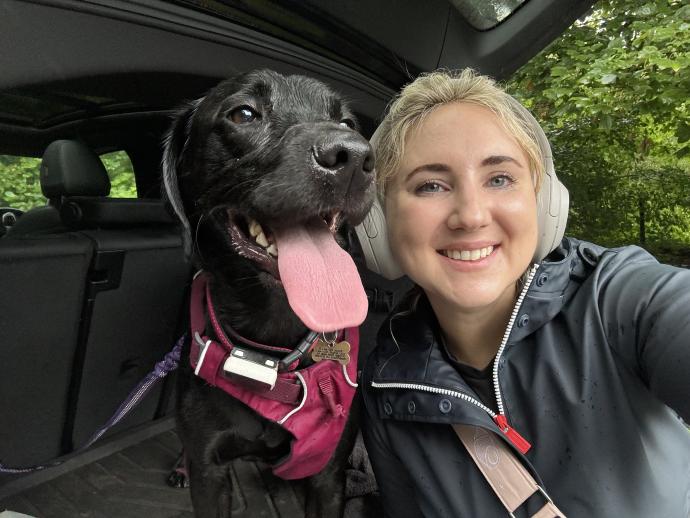This is Britt's Story.
I was put into a medically induced menopause as part of hormone treatment for symptom management of endometriosis and adenomyosis. At that stage I was still struggling with symptoms, and my medical team wanted to see if it might help with the pain and provide my body with some relief.
For me, this treatment felt very much like a last resort. I had limited options, as surgery wasn’t possible again so soon after my last one, and hormone therapy became the only route left to try. I remember feeling disappointed because I had hoped surgery would have made a bigger difference and given me the chance to move away from hormone treatments altogether, or at least reduce the amount I was on. I wanted to focus on a more holistic way of managing my conditions, but that just wasn’t completely possible at the time.
The support I received through the Endometriosis Clinic made all the difference. The nurse specialist there was incredible, helping me trial different types of HRT and really listening to how I was, or really wasn’t, coping throughout.
Unfortunately, the side effects far outweighed any benefits for me. It was an incredibly difficult process, both physically and mentally. My mental health took a major setback, and on top of that came the hot flushes, brain fog, and the feeling that my body no longer felt like my own.
Some people’s bodies just don’t tolerate hormones well, and the constant ups and downs can be exhausting, especially when you are forcing your body into a state it is not naturally ready for.
There’s often a tendency to compare medically induced menopause with natural menopause, but it isn’t a fair comparison. The experiences are different, yet both can be equally challenging in their own ways. Another myth is that menopause is only about periods stopping. It is so much more than that. Whether it happens naturally or through treatment, the hormonal changes can affect your energy, mood, sleep, skin, bones, and mental health.
After several injections and four different types of HRT, I did begin to feel a little better in some ways, but deep down I knew it wasn’t right for me. Chemical menopause helped slightly with the pain, but I eventually decided that I would rather manage the pain than live with all the side effects. After several months, I chose to stop treatment. I had given it a fair chance, but I couldn’t keep putting my body through that. This is just my personal experience though, and I know others who have found it to be life-changing and genuinely helpful. Sadly, that wasn’t the case for me.
If I could give one piece of advice to anyone who knows someone going through medical menopause, it would be to listen and try to understand what it really does to the body. There is a lot of information out there, but the most important thing is that people feel supported and confident in making the decision that feels right for them.
Menopause is often dismissed as just your periods ending, when in reality it affects so many aspects of life. Whether it happens naturally, surgically, or is medically induced, it brings significant physical and emotional changes. For those who experience it through treatment, it can feel like an extra layer on top of an already difficult condition to manage. Each experience is different, but all deserve understanding and compassion. A little empathy can make such a difference.
Lastly, there must be greater investment in research and the development of treatment options that go beyond hormonal control. People living with endometriosis should never be forced to choose between living in pain and living with unmanageable side effects. It is time to widen the focus of care, to create real, sustainable choices for those who have been overlooked for too long.
Thank you Britt for sharing your story.
For more information on endometriosis and the menopause, read Jo's Hot Topic here.
If you have questions about endometriosis and menopause, our Nurse Helpline team are on hand to help. They cannot give direct medical advice, but can help you talk through your options and provide information to support conversations with your healthcare team.


